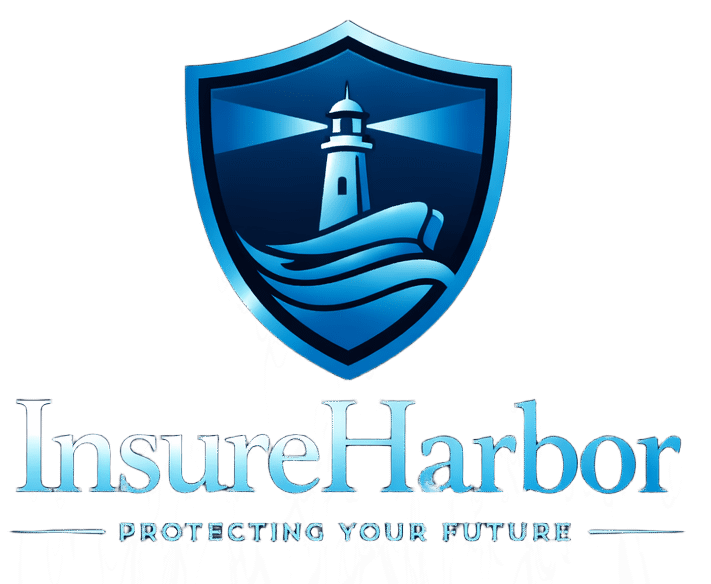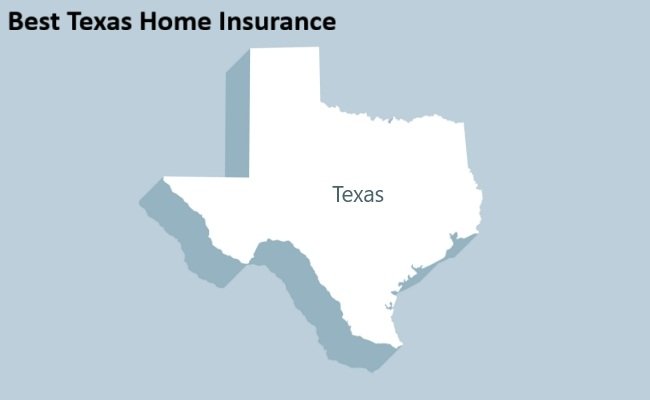In an ever-evolving market, securing the right home insurance policy is more crucial than ever for homeowners across the United States. As we move through 2025, understanding the nuances of various home insurance companies and their offerings can significantly impact your financial security and peace of mind. This comprehensive guide aims to shed light on the top providers, key considerations, and essential tips for choosing the best coverage for your most valuable asset. Many individuals are searching for reliable home insurance companies to protect their homes.
The landscape of homeowners insurance in America is dynamic, influenced by factors such as climate change, economic shifts, and evolving consumer needs. Recent data indicates a notable increase in home insurance premiums, with some reports showing a 20% rise in 2024 alone.
This makes it imperative for consumers to be well-informed and proactive in their search for reliable and affordable protection. Our analysis, drawing from reputable sources like U.S. News and MarketWatch, identifies leading home insurance companies that consistently deliver value, customer satisfaction, and comprehensive coverage. Finding the right home insurance companies is key.
Whether you’re a first-time homebuyer or looking to switch providers, this article will equip you with the knowledge to make an informed decision. We will delve into the specifics of what makes a home insurance company stand out, explore different types of coverage, and address frequently asked questions to ensure you are fully prepared to protect your home. Many top home insurance companies are available.
Key Factors to Consider When Choosing a Home Insurance Company

Selecting the right home insurance company involves more than just comparing premiums. A truly effective policy provides robust protection tailored to your specific needs, backed by a company with a strong financial standing and excellent customer service. Here are the critical factors to consider:
1. Financial Strength and Stability
One of the most important aspects of a home insurance company is its financial stability. You want to ensure that your insurer has the financial capacity to pay out claims, especially during widespread disasters. Ratings from independent agencies like A.M. Best, Standard & Poor’s, and Moody’s provide valuable insights into a company’s financial health. A high rating indicates a strong ability to meet policyholder obligations.
2. Coverage Options and Customization
Standard homeowners insurance policies typically cover dwelling, personal property, liability, and additional living expenses. However, the best home insurance companies offer a wide array of optional coverages to address specific risks. These might include:
- Flood Insurance: Standard policies do not cover flood damage. If you live in a flood-prone area, a separate flood insurance policy, often through the National Flood Insurance Program (NFIP), is essential.
- Earthquake Insurance: Similar to flood insurance, earthquake damage is typically excluded from standard policies.
- Identity Theft Protection: Some insurers now offer coverage for expenses related to identity theft recovery.
- Water Backup Coverage: Protects against damage from sewer or drain backups.
- Service Line Coverage: Covers repairs to utility lines (water, sewer, electrical) that run from your property line to your home.
Look for a home insurance company that allows you to customize your policy to fit your unique circumstances, ensuring you are not over-insured or under-insured.
Unlock Saving: 7 Step Best Home Auto Insurance Quotes Online
3. Customer Service and Claims Handling
When disaster strikes, a responsive and efficient claims process is paramount. Research a home insurance company’s reputation for customer service and claims handling. J.D. Power’s annual U.S. Home Insurance Study provides valuable insights into customer satisfaction with various insurers, covering aspects like policy offerings, pricing, and the claims experience. Companies like USAA and Amica consistently rank high in customer satisfaction surveys.
4. Discounts and Savings Opportunities
Many home insurance companies offer a variety of discounts that can significantly reduce your premiums. Common discounts include:
- Bundling: Combining your home and auto insurance policies with the same provider.
- Home Security: Installing burglar alarms, smoke detectors, and other security systems.
- New Home: For recently constructed homes.
- Claim-Free: For policyholders who haven’t filed a claim for a certain period.
- Loyalty: For long-term customers.
Always inquire about available discounts to maximize your savings.
5. Online Tools and Digital Experience
In today’s digital age, a user-friendly website and mobile app can greatly enhance your experience with a home insurance company. The ability to manage your policy, pay bills, and file claims online can save you time and effort. Companies like Progressive are often lauded for their robust digital platforms and customer experience..
Home Owners Insurance: Your 2025 Guide to 7 Smart Savings
Top 7 Home Insurance Companies in the USA for 2025

Based on extensive research and analysis from leading industry reports and consumer surveys, the following home insurance companies consistently stand out for their financial strength, comprehensive coverage, customer satisfaction, and competitive pricing. It’s important to note that the ‘best’ company can vary based on individual needs and location, but these providers generally offer excellent value.
1. USAA
Overview: USAA consistently ranks as a top-tier home insurance company, particularly for its exceptional customer service and comprehensive coverage options. While highly rated, its services are exclusively available to military members, veterans, and their eligible family members.
Key Strengths:
- Superior Customer Satisfaction: Consistently receives top scores in J.D. Power and U.S. News surveys for overall customer satisfaction, claims handling, and policy offerings.
- Comprehensive Coverage: Offers robust standard policies that often include unique benefits like identity theft coverage and military uniform coverage.
- Financial Stability: Holds an A++ (Superior) rating from A.M. Best, indicating excellent financial health.
2. Amica Mutual
Overview: Amica Mutual is renowned for its outstanding customer service and competitive pricing, often offering dividends to policyholders, which can reduce overall costs. It is a mutual company, meaning it is owned by its policyholders.
Key Strengths:
- High Customer Loyalty: Ranks highly in customer satisfaction and retention, often praised for its personalized service.
- Dividend Policies: Offers policies that can return a portion of premiums to policyholders based on the company’s financial performance.
- Affordable Premiums: Frequently cited as one of the most affordable home insurance companies in various analyses.
3. State Farm
Overview: As the largest property and casualty insurer in the U.S., State Farm boasts a vast network of local agents and a wide range of insurance products. It is a popular choice for many homeowners due to its accessibility and strong brand recognition.
Key Strengths:
- Extensive Agent Network: Provides personalized service through a large network of local agents across the country.
- Broad Coverage Options: Offers a variety of standard and optional coverages, including energy efficiency upgrades and identity restoration.
- Financial Strength: Holds strong financial ratings, ensuring its ability to meet claims obligations.
4. Allstate
Overview: Allstate is another major player in the home insurance market, known for its extensive coverage options and various discounts. It emphasizes local agent support and offers unique features to its policyholders.
Key Strengths:
- Customizable Policies: Provides a wide array of optional coverages, allowing homeowners to tailor their policies to specific needs.
- Claim Rateguard: A unique feature that prevents premiums from increasing after filing a claim.
- Local Agent Support: Offers in-person service through a network of local agents.
Allstate Home Insurance Reddit: 2025 Insights & User Reviews
5. Auto-Owners Insurance

Overview: Auto-Owners Insurance is highly regarded for its customer service and competitive rates, particularly in the states where it operates. While not as widely available as some larger insurers, it offers a strong value proposition.
Key Strengths:
- Top-Rated Customer Service: Consistently receives high marks for customer satisfaction and claims handling.
- Competitive Premiums: Often offers some of the lowest premiums in the regions it serves.
- Agent-Centric Approach: While quotes require an agent, policyholders can manage many aspects online.
6. Progressive
Overview: While widely known for auto insurance, Progressive also offers competitive home insurance policies, often through partner companies. It is recognized for its user-friendly digital tools and customer experience.
Key Strengths:
- Strong Digital Experience: Offers a highly-rated mobile app and online tools for policy management and claims.
- Bundling Discounts: Provides significant savings when bundling home and auto insurance policies.
- Competitive Pricing: Aims to offer affordable rates, often by comparing quotes from multiple providers.
7. Nationwide
Overview: Nationwide is a well-established home insurance company offering a broad range of coverage options and discounts. It is particularly strong in offering endorsements for natural disaster coverage, making it a good choice for homeowners in high-risk areas.
Key Strengths:
- Natural Disaster Coverage: Offers endorsements for perils like earthquakes and floods, which are typically excluded from standard policies.
- Identity Theft Protection: Includes identity theft protection as a standard feature in its policies.
- Strong Financial Standing: A financially stable company with a long history in the insurance industry.
Unveiling 10 Best Home Insurance Providers in USA for 2025
Frequently Asked Questions (FAQs) about Home Insurance
Q1: What does standard homeowners insurance typically cover?
A standard homeowners insurance policy (HO-3) typically covers damage to your dwelling and other structures (like a garage or shed) from perils such as fire, windstorms, hail, and theft. It also includes personal property coverage for your belongings, liability protection if someone is injured on your property, and additional living expenses if your home becomes uninhabitable due to a covered loss.
Q2: What is not covered by standard home insurance policies?
Standard policies generally do not cover damage from floods, earthquakes, landslides, mudslides, and typically exclude damage from neglect, wear and tear, or intentional acts. For perils like floods and earthquakes, separate policies are usually required.
Q3: How can I lower my home insurance premiums?
There are several ways to reduce your premiums, including:
- Bundling policies: Combining home and auto insurance with the same provider.
- Increasing your deductible: Opting for a higher deductible can lower your premium.
- Improving home security: Installing alarm systems, smoke detectors, and deadbolts.
- Making home improvements: Upgrading your roof, plumbing, or electrical systems.
- Maintaining a good claims history: Avoiding frequent small claims.
- Shopping around: Comparing quotes from multiple home insurance companies.
Q4: How often should I review my home insurance policy?
It’s advisable to review your home insurance policy annually or whenever significant life changes occur, such as:
- Purchasing expensive items or making major renovations.
- Adding a new structure to your property.
- Changes in local weather patterns or increased risk factors.
- Changes in your family situation (e.g., marriage, birth of a child).
Regular reviews ensure your coverage remains adequate and you are taking advantage of all available discounts.
Q5: What is the difference between actual cash value and replacement cost coverage?
Actual Cash Value (ACV) pays for the cost to replace damaged property minus depreciation. This means you receive the depreciated value of your belongings or home structure.
Replacement Cost Value (RCV) pays for the cost to repair or replace damaged property with new, similar items without deducting for depreciation. RCV provides more comprehensive protection and is generally recommended, though it comes at a higher premium.
Conclusion: Securing Your Home with Confidence
Choosing the right home insurance company is a critical decision that safeguards your most significant investment. By understanding the key factors that influence your choice, exploring the offerings of top-rated providers, and staying informed about market trends, you can confidently select a policy that provides comprehensive protection and peace of mind. Remember to regularly review your policy and adjust it as your needs evolve, ensuring your home remains well-protected against the unforeseen.




